Happy Thanksgiving!!! What a unique and beautiful Holy Day (holiday) where we join our families and thank God for all his goodness, like giving us great American warriors like Brian Shul.
I am especially thankful this Thanksgiving that quiet warriors like Major (Ret.) Brian Shul, wrote Between Operations, Sled Driver: Flying the World's Fastest Jet , The Untouchables: Mission Accomplished, and flew SR-71’s quietly for 25 years to protect us. I am even more thankful that quiet warriors like Pete Hegseth and Matt Lohmeier will now continue the Brian Shul level of American patriotism and sacrifice to again protect us.
God Bless the preppers, but they spend way too much time and money on things. Yet, preparing for, dealing with, and surviving and prospering after a manmade or natural disaster depends on God. You can have all the things in the world in your bunker, bug out kit, emergency room or vehicle, but your ultimate triumph over nature’s fury or man’s evil depends on God. Brian Shul’s life is evidence that God controls our lives.
For insight into how amazing Brian Shul’s life experience was, visit the Brian Shul Oral History Interview by the Museum of Flight on August 6, 2017.
There are men so great that naming a mountain range after them is not sufficient. Brian Shul was such a man. American civil defense came from great American military men like Brian Shul. It is time to examine the qualities that made them who they were and are. Let’s begin, shall we?
The Spirituality of American Tactical Civil Defense
I believe American Tactical Civil Defense, at its core, requires that you get to know God through prayer and study of the ultimate survival manual, the Holy Bible, and use the Gifts of the Holy Spirit (Wisdom, Understanding, Counsel (Right Judgement) Fortitude (Courage), Knowledge, Piety (Reverence), and Fear of the Lord (Wonder and Awe in God’s Presence) to help reduce loss of life and damage to property due to disasters. Teach us the way of your suffering, Jesus, so we may survive what is coming.
The Gifts of the Holy Spirit are a vital part of Christian theology. According to the Catechism of the Catholic Church, there are seven gifts:
Wisdom - The ability to value spiritual things over worldly ones. It enables one to see God at work in their lives and in the world.
Understanding - Provides insight into the truths of faith, allowing one to grasp the meaning of divine mysteries.
Counsel (Right Judgment) - Helps in discernment; it's the gift of good judgment in practical matters, especially in moral dilemmas.
Fortitude (Courage) - Grants a firmness of mind in doing good and resisting evil, even in the face of difficulty or danger.
Knowledge - This gift allows one to understand the natural world and to see how God is at work in creation, leading to a deeper knowledge of God.
Piety (Reverence) - Fosters a loving relationship with God, leading to a desire to worship and serve Him with devotion.
Fear of the Lord (Wonder and Awe in God's Presence) - Not about being scared of God but rather an awe and wonder at His majesty, leading to humility and obedience to His will.
These gifts are believed to be given to those who are in a state of grace through Baptism into Christianity. They enhance the virtues of faith, hope, and charity in the life of the believer. They are meant to guide and empower Christians to lead a life in accordance with God's will and to serve others in love.
Let’s learn about civil defense, God, spirituality, the Gifts of the Holy Spirit, and the power of prayer from the man who endured the ultimate manmade disaster, war, as taught by Brian Shul and the Sled Driver YouTube website.
Brian Shul’s Manmade Disaster and Recovery Story
War is the ultimate manmade disaster. During one of America’s many wars, the Vietnam conflict, Major (Ret.) Brian Shul flew 212 covert, close-air support missions in Laos and Cambodia. “That period of my flying career was a great educational experience,” Shul said. “I was there in midst of it…no name, no rank kind of stuff.”
On April 11, 1974, his aircraft was shot down near the Cambodian border and he was severely burned. He was evacuated to a military hospital in Okinawa where he was expected to die. Barely surviving two months of intensive care, he was flown to the Institute of Surgical Research at Ft Sam Houston, Texas. During the following year, he underwent 15 major operations.
He was told he’d never fly again and he was just lucky to be alive. Months of physical therapy followed, enabling Brian Shul to eventually pass a flight physical and return to active flying duty. But he didn’t accept the doctors never flying again diagnosis. Two days after being released from the hospital he passed his flight physical and was returned to active flying duty.
Shul was born on February 8, 1948, in Quantico, Virginia to a father who was a U.S. Marine. He joined the U.S. Air Force in 1970 shortly after graduating from East Carolina University with a degree in history. He became an attack pilot during the Vietnam War, flying 212 combat missions.
Toward the end of the war he was shot down while flying an AT-28D Trojan along the Cambodian border and endured a fiery crash behind enemy lines. Badly burned and blinded because his helmet visor had melted, Shul crawled out of the burning wreckage. When he spoke about the experience to audiences, he would joke that he was “just a lieutenant at the time and didn’t know how to make a decision,” so as he lay on the jungle floor he “could not choose between his water bottle or his gun.”
A helicopter crew with Special Forces aboard was sent to rescue him and could not land in the dense jungle, so the pilot kept the aircraft in a hover while crewmen “scooped him up like a sack of rice” and medevaced him out of the area. He would tell the audiences: “I knew then that I was on the right team.”
Over the next few years, he flew various aircraft before applying to become an SR-71 pilot. His time flying the Blackbird was instrumental during the Libyan crisis in 1986, when he flew three mission providing critical intelligence. Shul retired having flown 12 different military aircraft and 5,000 hours in fighter jets.
Between Operations: Holy Suffering Disaster Lessons by Brian Shul
Several years ago I had looked up Brian Shul’s Sledge Driver on eBay to buy it for my grandson, but found the $477 price too high and did not order it. Because God works in mysterious ways, I got thinking about his book again recently and entered it in eBay.
Along with many editions of the book coming up in my eBay search, a small notice appeared selling Brian’s Between Operations diary listed as: SR-71 Sled Driver Brian Shul’s Rare Burn Center Manuscript “Between Operations.” Knowing it was a one-of-a-kind piece of history, amazed no one had bid on it, and because I love reading autobiographies of American military men who have overcome incredible pain and challenges, I made an offer that was accepted.
As I expected, it was a remarkable piece of writing. He dedicated it to, “For Victor, my brother, and friend, Love, Brian.” When I read his burn unit diary, it became clear to me that he was a believer in redemptive suffering. This is no theological treatise. What I mean is that he clearly writes about suffering as redeeming, and he does it with incredible humor. I believe knowing about and offering up redemptive suffering is critical to getting through any disaster.
For background, Brian Shul was an American pilot and photographer who is well-known for having survived the disintegration of his aircraft over Vietnam and for his being a pilot on and subsequently writing about the SR-71 Blackbird, one of the most iconic aircraft in aviation history. For more detailed information on his remarkable life, see Sled Driver here. I also encourage you to visit the websites and videos I have linked to get a better understanding of how great a man he was.
Shul served as a Foreign Air Advisor, flying 212 combat missions during the Vietnam War. He was shot down near the Cambodian border, suffering severe burns over much of his body. His survival and recovery were nothing short of miraculous, leading to extensive medical treatment and rehabilitation.
Once he arrived at the military hospital in Okinawa, doctors believed he would not survive his burns. Following two months of intensive care, he flew to the Institute of Surgical Research at Fort Sam Houston, Texas. During the following year, he underwent 15 major operations. Physicians told him he'd never fly again. Months of physical therapy followed, enabling Shul to eventually pass a flight physical and return to active flying duty.
His story is evidence of the gifts of the Holy Spirit enabling one man to triumph over a manmade disaster. It offers multiple lessons for how your level of spiritual development will determine your level of ability to deal with disaster.
Brian Shul experienced an horrific crash and burn, spent months in the tank medically recovering, and showed the Gifts of the Holy Spirit in that recovery and living a full, productive life afterwards. In other words, he personifies the best of an American Tactical Civil Defense mindset. As he states, recovery is not courage. It is a decision. The same is true for learning civil defense.
Below I highlight quotes from Brian Shul’s diary he kept as a Captain, USAF, BAMC, 1974, Ward 13-B. All are relevant to learning American Tactical Civil Defense, because it is more about spiritual awakening and living than merely accumulating material survival things.
Introduction to Between Operations
Brian Shul suffered horribly when his airplane disintegrated around him and his crash and burn. The resulting fire seared his flesh. His words introducing his hospital diary below provide deep insight into what can be learned in any disaster.
This small collection of writings was written for patients of this ward, by a patient of this ward. By the time that I am discharged from this hospital, I will have spent more than 10 months in healing from my burns. I am an Air Force pilot, and in the course of my flying in Southeast Asia, watched as my plane disintegrated, all from a front row seat. it is a miracle that I am here at all and I know it.
I learned one thing throughout the ordeal though, and that is, if you can keep your sense of humor, you can really get through a lot more than you thought possible. In my nearly year-long ordeal, I have experienced the spectrum of emotions, but throughout it all, I found that a little sense of humor went a long way. Look around you. You may see those with long blank stares, allowing their depression to drain the very strength the need to heal themselves. That’s right, heal themselves. The doctors can only do so much for you. h
Here it is primarily up to you how soon you will leave this place. They haven’t yet invented the pill which can instill you with desire or motivation.
So, if you happen to be one of those who feels that the world has certainly dealt them a raw hand, then think again buster. As bad as your accident might have been, God spared your life for some reason, and it now up to you to put forth your efforts in recovering yourself for that purpose.
I feel like a have completed a graduate course in Life Appreciation, and depending on the length of your stay here, you too may feel the same. Hang in there all you brave people; this too shall pass.
On Life
Having almost lost his life, Brian Shul was aware of God’s place in it
Some people lead such dull lives, with no challenges or far-reaching goals. There are those who even set their dreams beneath the stars. God did not call upon you to be like the canary bird, trapped in the confinements of a cage; but rather to be like the Eagle, to fly across continents, and reach for galaxies, so that in the end your life will have shone brightly like a sun, and very stars will whisper your name.
On Trying
In any disaster, trying is critical. Trying to recover. Trying to find your lost items among all the damage. Trying to call your family to tell them you are alive. Trying to calm the children and grandchildren to assure them everything is alright, even when you are fully aware nothing is alright. Here Brian Shul shares his hard earned wisdom on trying to get past his disaster in the Air Force burn unit.
This poem was written to help those who may have temporarily forgotten, that three still is a very abundant life going on out there, even though you may seem to be standing still at the present.
I’ve Dreamed many dreams that never came true,
I’ve seen them vanish at dawn
But I've realized enough of my dreams,
To make me want to dream on.
I’ve prayed may prayers, when no answer came,
Tho’ I waited patient and long
But the answers have come to enough of my prayers,
To make me want to pray on.
And now I’ve tasted the cup of disappointment and pain,
And gone many days without song,
But I’ve sipped enough nectar from the roses of life,
To make me want to live on
You can upset your relatives, disappoint your doctors, and aggravate the nurses; but when you quit on ourself, and let yourself down, they you really have nothing left. If you weather this storm (disaster), there will, in time, come a calm like you have known.
On Scars
There are always scars left on survivors of disasters. Just ask the people of Appalachia who just went through the fury of hurricane Helene. Some scars are physical, some mental, some spiritual. Brian Shul offers remarkable wisdom about scars that reflect his Gifts of the Holy Spirit.
So now it is time for you to leave the hospital and you are all worried and self-conscious about the scars that your burn has left you with. You feel very uncomfortable having people stare at you. You are anxious about how all your old friends are going to accept you now when you get home. These are all normal feelings, but think about it for a moment, what do you want to do, remain in some sort of shell the rest of your life? After all that you have come through, are you now going to let it go for naught just because you look a little different than you used to? Give people a little more credit than that. They are going to accept you for what you are, and more than likely, they are going to admire you for what you have been through, that is of course if you don’t sit around feeling sorry for yourself. Don’t look back, what is done is done. Wherever you go from here, wear your scars proudly. You have been through something that few people have [a disaster], and you have beaten it when others might have failed. If someone stares at you, then that is their problem, not yours, you have already overcome your problems as evidence by the that that you are out of the hospital, and earned your exit the hard way.
Brian Shul’s Recovery and Triumph over his Disaster
Two days after being released from the hospital, he was back flying fighter jets. He went on to fly the A-7D Corsair II, and was then selected to be a part of the first operational A-10 Thunderbolt II squadron at Myrtle Beach Air Force Base, South Carolina, where he was on the first A-10 air show demonstration team.
After a tour as an A-10 instructor pilot at Davis-Monthan AFB, Arizona, he went on to instruct at the USAF's Fighter Lead-In School as the Chief of Air-to-Ground Academics. Imagine how good a pilot he was to be selected for that elite position! As a final assignment in his career, Shul volunteered for and was selected to fly the SR-71. The story of the famous ground speed check is here.
This assignment required an astronaut type physical just to qualify, and he passed with no waivers. Shul's comeback story, from lying near dead in the jungle of Southeast Asia to later flying the world's fastest, highest flying jet, is the story of how God saves us through His grace and our hard work.
Shul also made an Air Force safety video titled "Sierra Hotel" (with the title referring to the NATO phonetic alphabet code for the military aviator slang expletive "Shit Hot") where he described his crash ordeal in explicit detail to motivate other USAF pilots to be more safety conscious and teaching them how to better survive such incidents.
Shul was a favorite speaker at airshows, fly-ins, and aviation museums. Usually wearing a flight suit and later a polo shirt with an American flag motif, he told the audience declassified technical information about the once-super-secret SR-71.
This included details about how the windows of the aircraft would get as hot as a pizza oven and he would heat up his lunch. It had to be consumed through a straw since the flight crew wore astronaut pressure suits and helmets by holding the tube of food against the window with his gloved hand. He noted that the ability to climb significantly higher and fly faster than any other aircraft were its defensive attributes. “The only weapon on board was the pocketknife carried by the backseater.”
His missions took place at the height of the Cold War. He described being chased by Russian MiG’s that couldn’t catch the SR-71 and added that the flights were often frightening and very fatiguing since they required eight hours in the cockpit, but were also rewarding.
“The Berlin Wall came down on our watch,” he noted.
After 20 years and 5,000 hours in fighter jets, Brian Shul retired from the U.S. Air Force in 1990 and went on to pursue his writing and photographic interests. In addition to running his own photo studio in northern California, he authored seven books on flying and flight photography, and gave motivational speeches.
Shul's third and fourth books are about America's air demonstration teams, the Navy Blue Angels, in Blue Angels: A Portrait of Gold, and the U.S. Air Force Thunderbirds, in Summer Thunder and contain aerial images from inside the formations of these teams. In 1997, Shul released his fifth book, Eagle Eyes : Action Photography from the Cutting Edge, which is a collection of his in-flight photos. To get an idea of Brian Shuls master photography, see here.
Most of his photographic work for the last few years of his life were nature shots, especially of wild birds. He often posted these online, with detailed descriptions of the circumstances involved in taking the photograph.
In his talks, Shul told the story of the SR-71 being the end of a ground speed check over radio one-upmanship with the smug pilot of an F/A-18 Hornet. He said that this was the most-repeated story about the SR-71 in history and he was a storyteller par excellence.
Brian died doing what he enjoyed the most, talking about the SR 71. He was the keynote speaker at the Nevada military support alliance annual gala on May 20, 2023. After his speech, he keeled over, doctors in the house performed emergency CPR to no avail, and Brian went to Heaven.
On a classroom wall at the USAF Officer Training School at Lackland AFB in 1983 when I was there, a poem was on the entire wall of a classroom Back then, it was not only tolerated to be a Christian but encouraged. I pray it is still there and not purged in the DEI Marxist ideology that has infected all the service branches in the past few years. The poem was written by John Gillespie Magee Jr. It is called High Flight and encapsulates Brian Shul’s life.
High Flight
Oh! I have slipped the surly bonds of Earth
And danced the skies on laughter-silvered wings;
Sunward I've climbed, and joined the tumbling mirth
of sun-split clouds,—and done a hundred things
You have not dreamed of—wheeled and soared and swung
High in the sunlit silence. Hov'ring there,
I've chased the shouting wind along, and flung
My eager craft through footless halls of air ....
Up, up the long, delirious, burning blue
I've topped the wind-swept heights with easy grace
Where never lark, or even eagle flew—
And, while with silent lifting mind I've trod
The high untrespassed sanctity of space,
Put out my hand, and touched the face of God.
SR-71 Blackbird Experience
After recovering from his injuries, Brian Shul returned to active duty. He flew various aircraft, including the A-7D Corsair II and was involved in the A-10 Thunderbolt II's initial operational squadron.
SR-71 Assignment: Shul's last significant assignment was flying the SR-71 Blackbird, where he had to pass an astronaut-type physical to qualify. He became one of the few pilots to fly this high-altitude, high-speed reconnaissance aircraft, known for being the fastest jet in the world at that time. His contribution included flying reconnaissance missions and participating in airshows.
Sled Driver: Flying the World's Fastest Jet - This book detailed his experiences and included his own photographs of the SR-71. You can hear an interview with Brian Shul at his Museum of Flight Digital Collection Oral History program here.
Description: Sled Driver – Flying The World's Fastest Jet. Nicknamed the Sled by those who flew her, the SR-71 was the world's fastest, highest flying jet in the world. For 25 years this magnificent aircraft performed vital reconnaissance missions of the highest national importance. Brian Shul was the first SR-71 pilot ever to write about what it was like to fly this space aircraft, and coupled with photos from his personal collection, the book became an enduring aviation classic. Order Sled Driver: Flying the World’s Fastest Jet here.
The Untouchables: Mission Accomplished - Another book about his time with the SR-71.A riveting first hand account of one of the hottest missions ever flown in the secret SR-71. Fly along with Sled pilot Brian Shul and his backseater Walter Watson during the Libyan Crisis of 1986, as they outrun missiles over Qaddafi's headquarters. Cockpit action is intertwined with fascinating revelations from those critical engineers and technicians behind the scenes of every Blackbird mission.
Silent for so long, these dedicated specialists with great candor and passion, tell their stories of helping to design, build, and support the world's most renowned spy plane. Coupled with the pilot's and RSO's accounts of their unforgettable three flights in three days and stunning photos from the author's personal collection. You can order The Untouchables: Mission Accomplished here.
Additional Books Brian Shul wrote on the Blue Angels and Thunderbirds
Blue Angels: A Portrait of Gold by Brian Shul was published in 1995. The book is a visual and narrative portrait of the United States Navy’s Flight Demonstration Squadron, the Blue Angels. The book features stunning photographs of the Blue Angels in action, showcasing their aerial stunts and maneuvers. Shul’s narrative provides insight into the team’s history, aircraft, and pilots, and his own experiences flying with the squadron. The book is a tribute to the Blue Angels’ skill, precision, and dedication to their craft.
Summer Thunder chronicles his experience with the United States Air Force Air Demonstration Squadron, also known as the Thunderbirds. The book follows the team through a display season, offering a unique behind-the-scenes look at the squadron’s operations.
Says Brian Shul: "I was fortunate enough to get to spend an entire winter season with the team. I flew with them, attended their briefings, and generally watched as a team came together during a very difficult three month trial. I was able to see the behind-the-scenes story of what it takes to make that show happen, and it was phenomenal. I was faced with new photographic challenges also, as the intense maneuvering and high G forces of the Thunderbird routine brought new meaning to the word concentration.
One of the quickest ways to a severe headache I know, is to be staring sideways out the cockpit, looking through a small viewfinder, trying to focus, pulling Gs, and maneuvering violently in ways you have no control over. But, like the fledgling Thunderbird pilots, I too became more competent with each flight and was able to produce enough shots that met my standards, for the book.
Photography and Writing: After retiring from the Air Force in 1990, Brian Shul pursued his interests in photography and writing. He authored several books with nature photos but I could not find any in my research to provide links. He did run a photography company, Gallery One, but I am not sure the website is still active. I did find photos he took, below, that demonstrate his remarkable talent as a nature photographer.
Brian Shul’s Spirituality and How to Survive Disasters Model
As Brian Shul’s crash and burn disaster and subsequent brilliant life illustrates, every disaster is experienced individually, but by decision can dramatically impact the wider American tribe in a positive way. He took his disaster and transformed it into hope and inspiration for generations of young pilots and civilians.
His use of his Gifts of the Holy Spirit to recover, aid the recovery of his fellow burn victims, and to then retrain his soul, mind, spirit, and body to go on and fly an SR-71, basically a spaceship, for 25 years and record his flights in photos to inspire another generation of pilots, is testimony to the human spirit’s ability to not only overcome disaster, but to transform it into good for other humans. A quiet warrior, he went to Heaven doing what he loved, inspiring and helping others achieve their dreams.
In such ways do Christian sinners become Christian saints.
P.S. In an effort to give Brian Shul’s Between Operations the wider audience it deserves, I gave a copy to the person in charge of Volunteer Services at my local VA in Martinsburg, WV. He said he would read it and consider distributing it to patients to give them hope, as I suggested. Maybe it can go from there to the entire VA system to give other Vets hope.


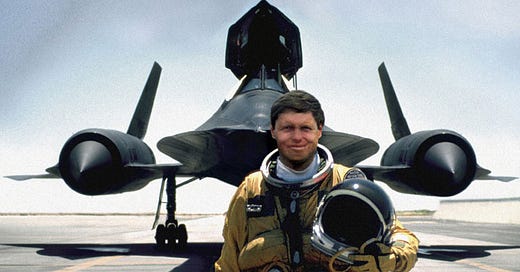



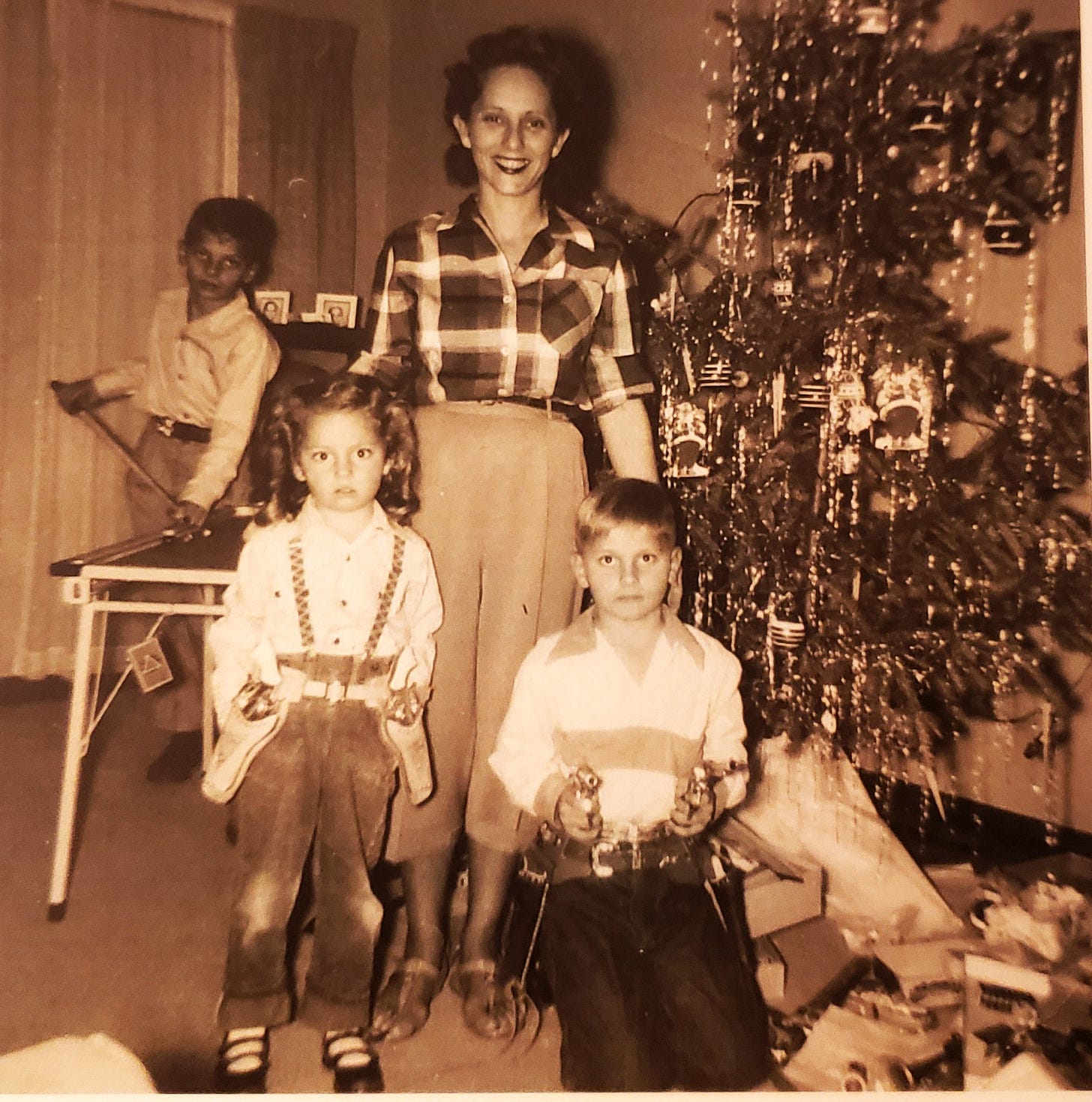

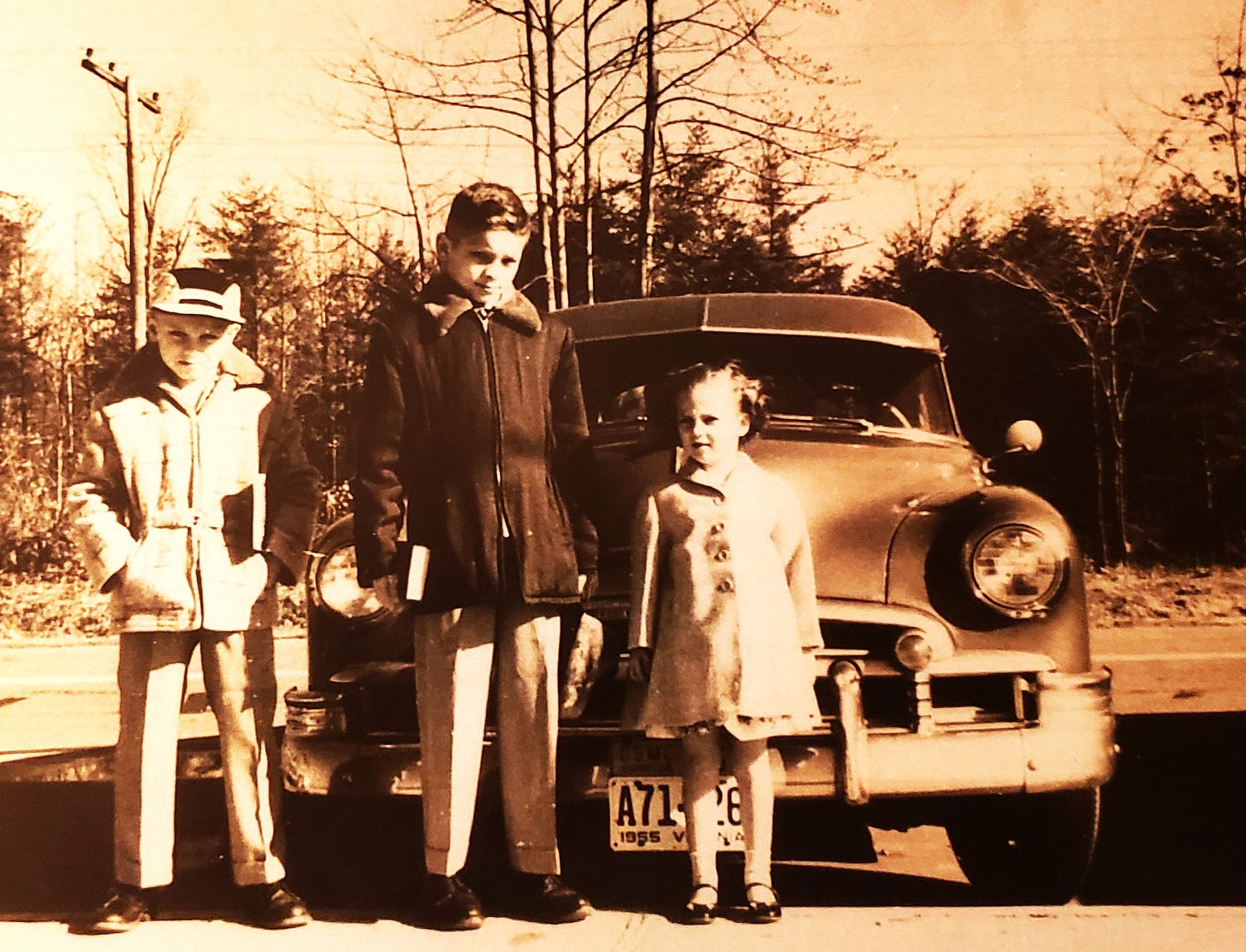



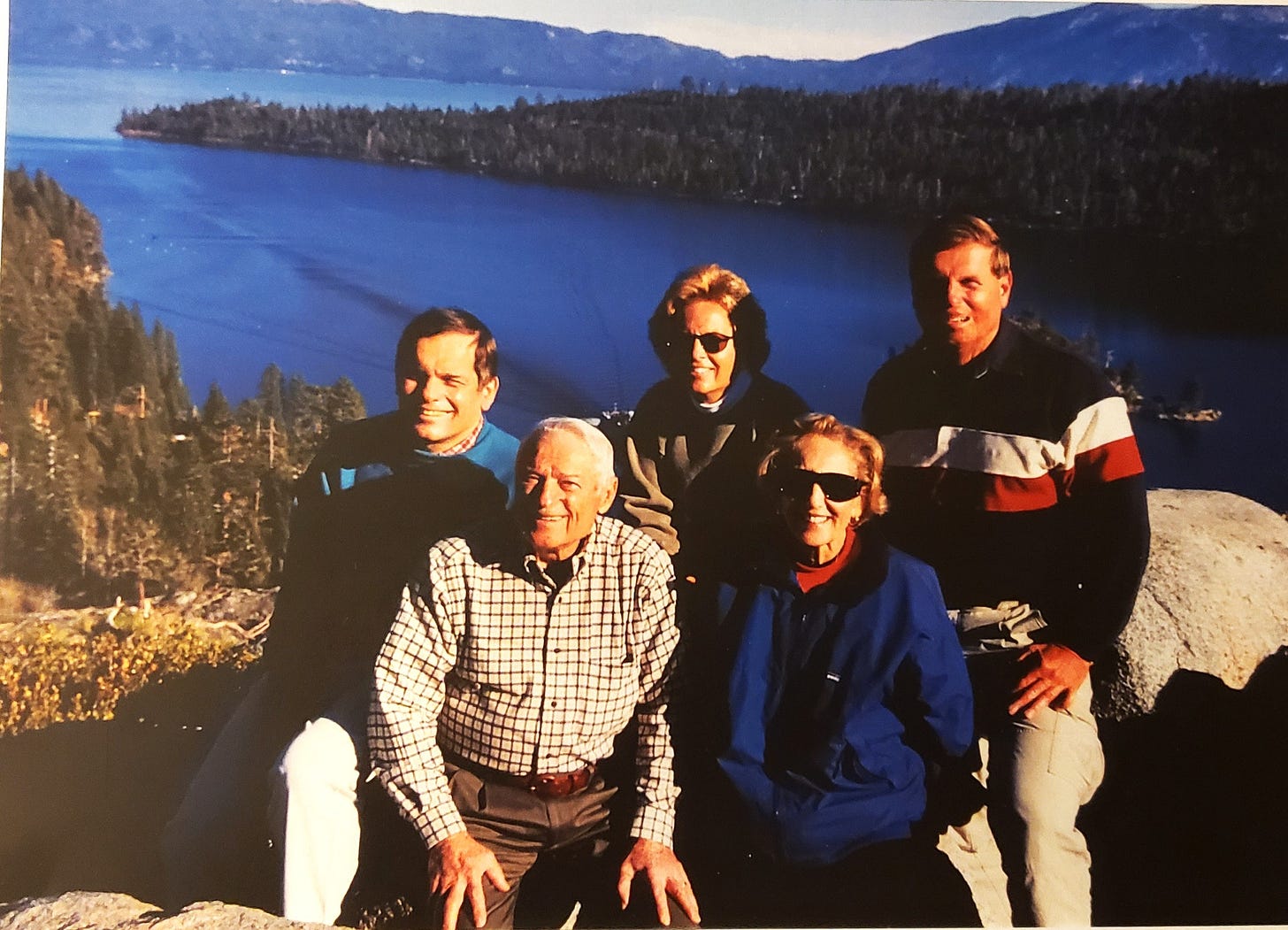
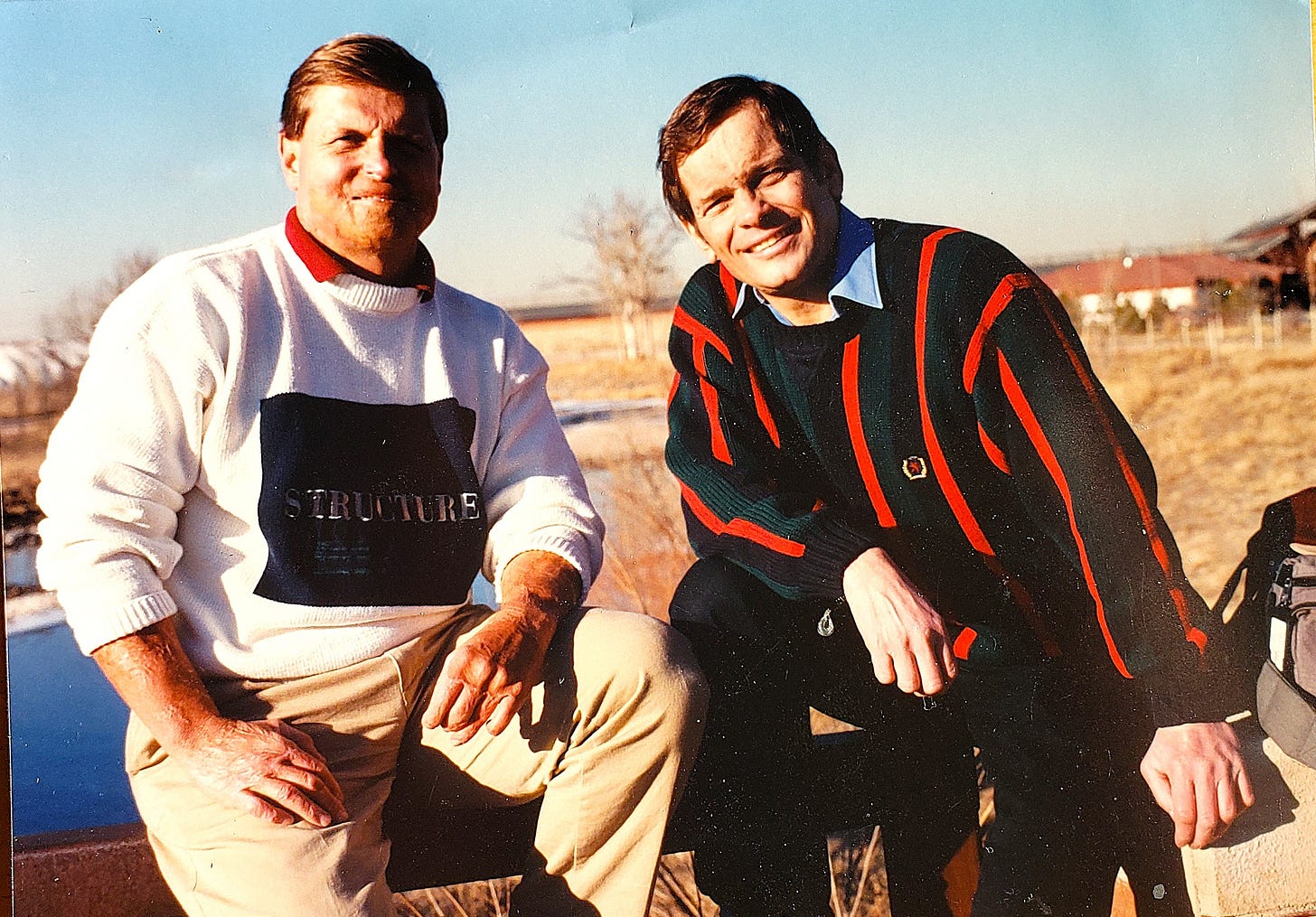
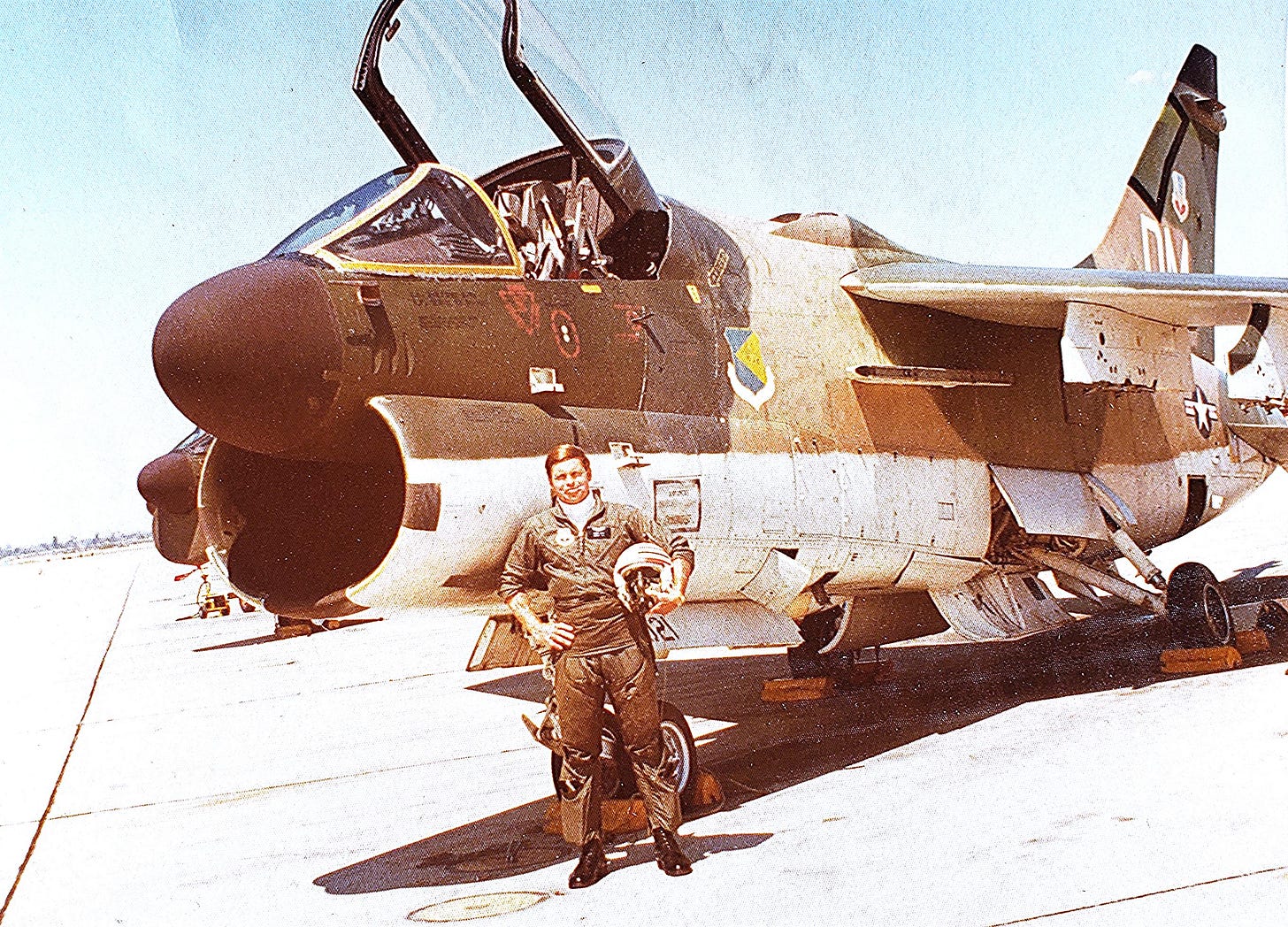
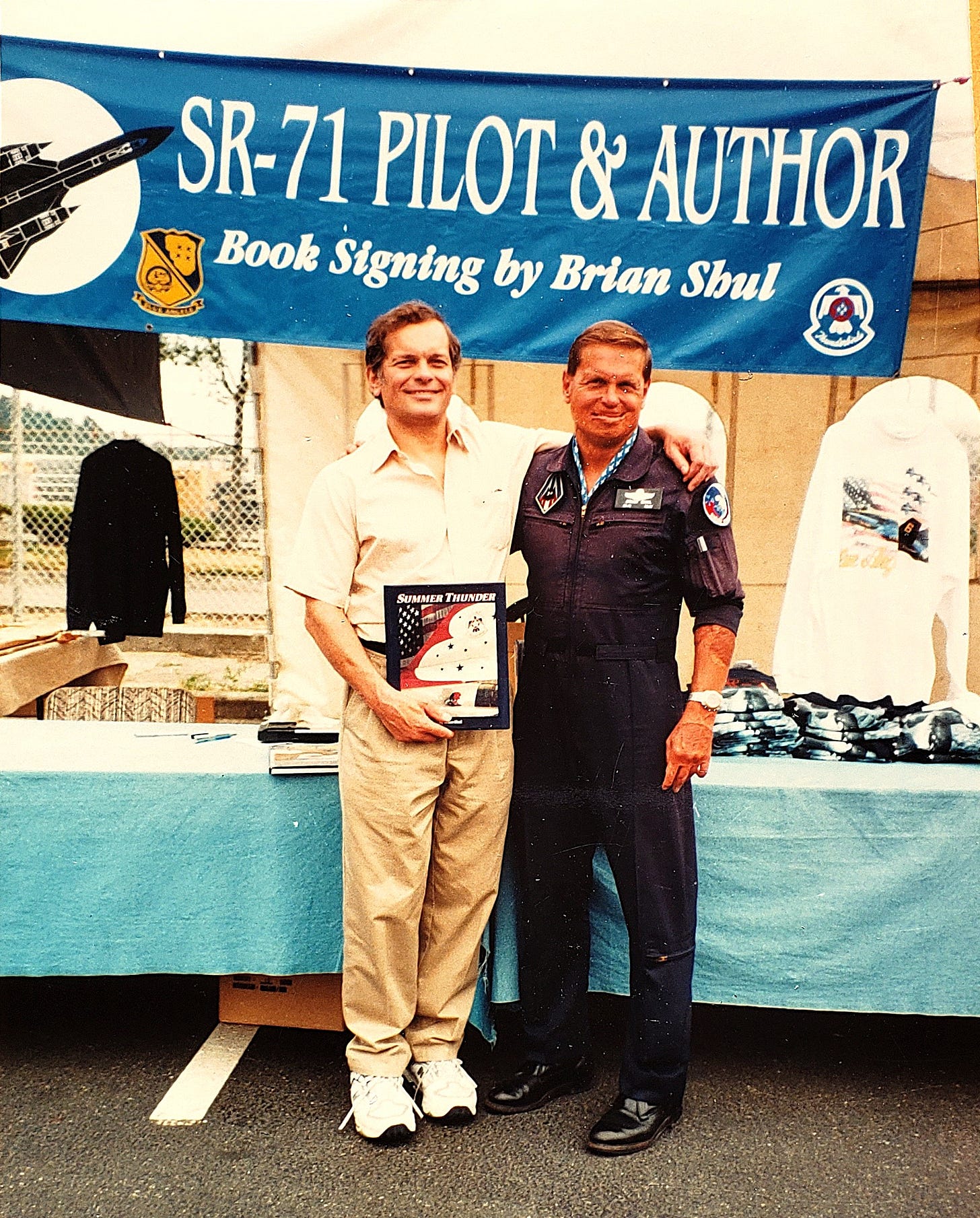

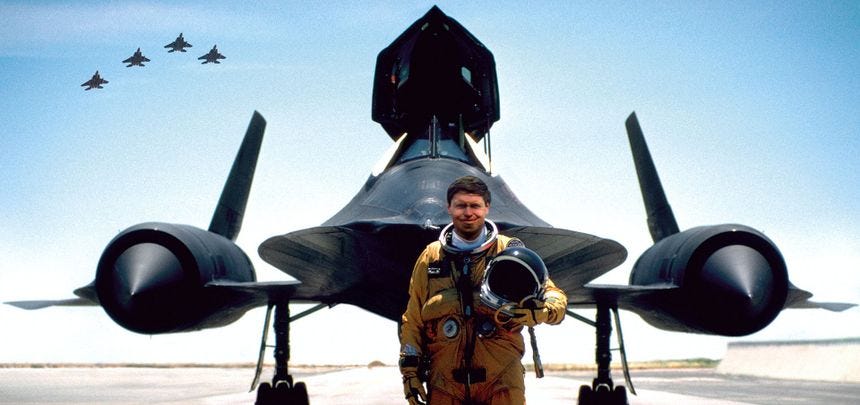





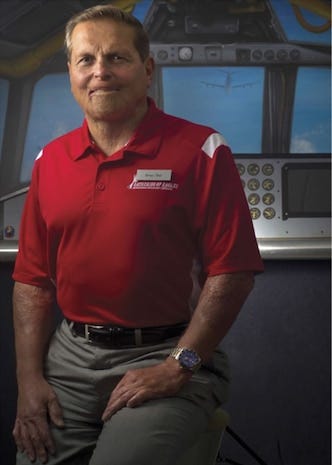


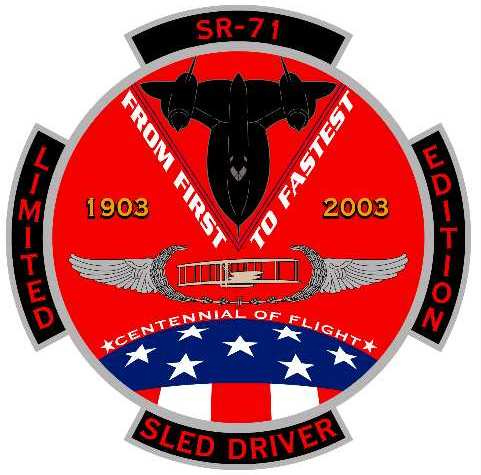


The Lord Jesus reigns supreme for all eternity. If He is your Adonai, your Alpha and Omega, your hope and light, you are blessed and will be surrounded by a hedge of protection against all evil. The gates of hell cannot stand against you, for He that is in you is greater than he that is in the world. Do your part - be smart, be prudent, be aware, be ready - but most of all, be on your knees in prayer for His strength and wisdom to sustain you. The Lord will provide all your needs.